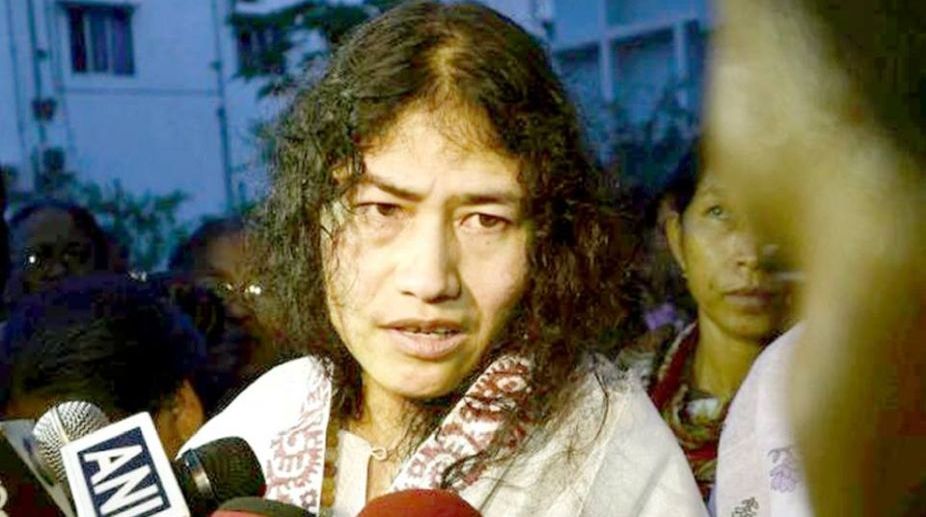As Manipur grapples with escalating ethnic unrest, the absence of Irom Sharmila, the renowned “Iron Lady of Manipur” has sparked questions about her whereabouts amidst the ongoing violence.
Sharmila, known for her indomitable 16-year hunger strike demanding the repeal of the Armed Forces Special Power Act, has faced personal hardships. After the historical hunger strike Sharmila relocated to Bengaluru (Bangalore), where she is now settled with her two children. Sharmila’s remarkable hunger strike brought global attention to the struggles faced by Manipur and its people. Her non-violent resistance and unwavering determination shed controversial light on AFSPA Act, which granted special power to the military.
Advertisement
Following the conclusion of her hunger strike Irom Sharmila ventured into politics by establishing the People Resurgence and Justice Alliance (PRJA). However, her political endeavors did not yield the desired outcome in the 2017 Manipur State Assembly Election. This prompts the question about whether her absence amidst the ongoing crisis reflects disenchantment with the political system or a deliberate decision to focus on alternative methods of advocating for change.
The ethnic unrest in Manipur stems from demands from the Meitei community, who seek greater recognition and representation within the state. The clashes between different factions have inflicted significant loss of life and widespread destruction. Amidst this backdrop, Irom Sharmila, a prominent figure in the history of Manipur, is being remembered by many due to her significant contribution in tumultuous circumstances in the past.
After years of relentless fasting, she might have faced physical and emotional challenges that compelled her to step back from the public sphere. Although Irom Sharmila’s absence has left a void in Manipur’s fight for justice and equality, it is essential to respect her right to privacy and her personal journey after the historic hunger strike. While her powerful voice was once at the forefront of Manipur civil rights movements, her current silence is a reminder of the toll politics may have taken on her well-being. Has the weight of her struggle left her emotionally drained from the forefront of activism or is it how India now values non-violent struggles ?
Her decision to abstain from active participation in the conflict has also sparked a crucial discussion, that she seeks to maintain a neutral stance, avoiding favoritism towards her own Meitei community. As a renowned advocate for justice and peace, Sharmila’s deliberate disengagement raises complex questions about the delicate balance between individual neutrality and loyalty to one’s community in times of turmoil.
Though, she did on one occasion appeal to Prime Minister Narendra Modi to help end violence in Manipur and also asked women of Manipur to concertedly work towards peace in the state.









